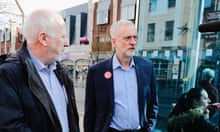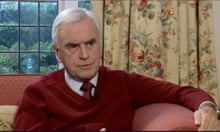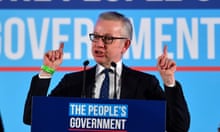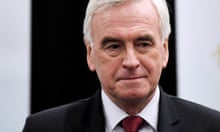Labour hearts shattered at the stroke of 10. When the main broadcasters’ exit poll dropped as the hour turned, it delivered the news that activists had dreaded most: an early indication that Boris Johnson had achieved the landslide victory he craved by delivering the biggest Conservative majority for more than 30 years.
After weeks of fluctuating polls and campaigning in winter darkness, an underlying narrative had still left room to doubt Tory hopes of “getting Brexit done” by making some gains from Labour while limiting their losses to the Liberal Democrats.
In a flash, however, a torrent of political change was predicted by the exit poll, which forecast a Conservative majority of 86 and set the tone for a night that appeared to seal Britain’s Brexit fate. There would be no hung parliament, no second referendum and the UK’s departure from the EU would take place on Johnson’s terms. Within minutes, the pound was surging on the back of investors betting that the outcome would lift the intense political uncertainty hanging over the British economy.
By the early hours of the morning, Labour supporters were looking on in horror as the party’s so-called “red wall’ of northern seats crumbled before their eyes, a change that would include the extraordinary vista of leave-voting former mining communities embracing a Conservative party blamed in the past for laying waste to them in the 1980s.
Casualties included the shadow employment secretary, Laura Pidcock, much vaunted in recent times as a future party leader. In a moment of symbolism as the clock ticked past 5am, the Conservatives passed the 326 seat mark for a majority when the party captured the Derbyshire constituency of Bolsover, represented by former miner Dennis Skinner for almost 50 years.
Speaking later after defending his seat of Islington North, the Labour leader, Jeremy Corbyn, announced that he would not lead the party into another general election but would remain in charge during a “process of reflection”. But even as he was on his feet, the Tories were taking Tony Blair’s former constituency of Sedgefield, a seat Labour had held since 1935.
In the first reaction to the 10pm exit poll from the Labour frontbench, resignation was already etched on the face of John McDonnell who insisted that most people had believed the polls were narrowing.
“I think Brexit has dominated. It has dominated everything by the looks of it. We thought other issues could cut through and there would be a wider debate. From this evidence there clearly wasn’t,” he said.
With recriminations already under way within Labour, Tory figures who had kept a low profile on the airwaves returned with a vengeance. They included Mark Francois, the deputy chairman of the hardline European Research Group, who likened the looming breaches of Labour’s “red wall” to the fall of the Berlin Wall during the cold war.
When it came, the first political earthquake of the night was less a case of the wall being breached and more Labour’s inner sanctum being seized, as the north-east constituency of Blyth Valley fell to the Tories.
“I’d like to thank Boris … because I’m going to be on that train on Monday. I’m going to London, we’re going to get Brexit done,” said Ian Levy, after the mental health support worker became the Conservative MP for a constituency on the Northumberland coast that had been in Labour hands since the seat’s creation as “Blyth” in 1950.
The Blyth Valley declaration had been preceded minutes earlier by Newcastle upon Tyne, which once again became the UK’s first constituency to declare a result, followed seconds later by Sunderland, its rival since 2010 for the accolade.
While both returned Labour MPs, the results reinforced the sense of the political landscape being radically redrawn. Despite the Tories failing to significantly increase their vote in either seat, much-reduced Labour majorities led to significant swings to the Brexit party.
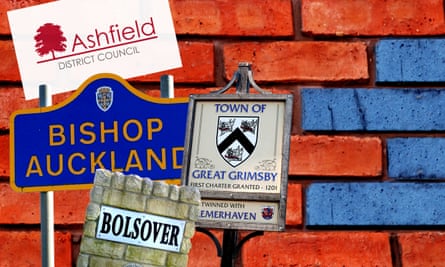
However, the Conservative tide in the north was to gather pace again after 1am when Workington – a Labour seat for 100 years apart from a brief blue period in the 1970s – fell to the Tories in one of the night’s most eye-catching results. The Tory councillor Mark Jenkinson took the seat, encompassing part of the Lake District and a former steel town, with a thumping majority of 4,176. Thinktanks had identified “Workington Man” as a stereotype for older, leave-voting northern men who were likely to ditch Labour for the Conservatives.
The declaration coincided with a concession of defeat from Labour’s Helen Goodman well before results were formerly announced in Bishop Auckland, a leave-voting northern seat held by Labour since 1935 but which delivered a nearly 8,000 majority to the Tories.
Elsewhere in the UK, key results were slow to come through but one of the most high-profile casualties of the night was clocked up just before 3am when Nigel Dodds, the Democratic Unionist party’s Westminster leader lost the seat of North Belfast to the city’s Sinn Féin mayor, John Finucane.
The result capped a horrendous night for the DUP, which was beaten by the cross-community Alliance party in the battle to take the North Down constituency previously held by the independent unionist, Lady Sylvia Hermon. By the early hours, for the first time in its history Northern Ireland was on course to have more nationalist and republican MPs than unionist ones.
In Scotland, where the Scottish National party was on course for a landslide victory giving the party 55 of the 59 seats there, the Liberal Democrats’ woes were underlined by the loss of leader Jo Swinson’s seat. Five weeks after she had started the campaign presenting herself as a would-be prime minister, Swinson missed out on being returned as the MP for East Dunbartonshire by fewer than 150 votes.
The Lib Dem failure to capitalise on opposition to Brexit was also highlighted when Chuka Umunna, who left the Labour party this year, fell short in a high-profile attempt to capture the long-term Tory but strongly remain-leaning seat of Cities of London and Westminster. The failure of Luciana Berger – another former Labour MP hoping to re-enter parliament in Lib Dem colours – to oust the Tories from Finchley and Golders Green bookended a miserable night for Swinson’s party.
Lib Dem and Labour misfortunes collided in Kensington, where the Conservatives took back the seat they had lost to Labour’s Emma Dent Coad in 2017 by a margin of 150 votes. There was shouts of “shame” from Labour activists as the Liberal Democrat candidate, the former Tory minister Sam Gyimah, was blamed by them for splitting the anti-Brexit vote in the heavily remain-supporting seat.
It took until almost 2am before Labour was celebrating its first gain of the night, when the prosperous west London constituency of Putney, previously held by the former Tory minister Justine Greening, was captured on the back of a large turnout.

Other rare spots of good news for Labour came when Rosie Duffield increased her majority in Canterbury and Clive Lewis was returned in Norwich South.
However, there was bitter disappointment for large numbers of activists who had poured into the remain-voting Chingford and Woodford Green constituency during the campaign in the hope of unseating the former Tory leader Iain Duncan Smith. It was held with a reduced majority of 1,062.
And despite facing an energetic tactical voting campaign to oust him from his own constituency of Uxbridge and South Ruislip, Boris Johnson was exuberant from the stage after being returned, telling those at the count: “It does look as if this one nation conservative government has been given a new mandate to get Brexit done, and not just to get Brexit done but to unite the British people.”
At Conservative headquarters (CCHQ), they were toasting less familiar figures than Johnson. “Oh Isaac Levido,” jubilant activists chanted, borrowing a slogan used by the Corbyn faithful to praise the youthful former right-hand man of long-term Tory adviser Lynton Crosby, who had taken centre stage as head of the campaign.
Corbyn loyalists were already laying the ground to defend his project, as the previously becalmed hostilities of Labour’s civil war started up again.
“It’s all very well saying the policies have been rejected but how do you explain the fact that the poll says in Putney there’s 85% chance of a Labour victory?” asked Jon Lansman, the founder of the grassroots campaign group Momentum, on ITV.
Sitting beside him in the ITV studio, the shape of recriminations to come were laid bare by the angry comments of Alan Johnson, a senior minister in the Blair and Brown governments, who said that he wanted to see Momentum “out” of Labour. Describing Corbyn as a “disaster” on the doorsteps, he added: “Everyone knew he couldn’t lead the working class out of a paper bag.”
Thank you to everyone across our great country who voted, who volunteered, who stood as candidates. We live in the greatest democracy in the world. pic.twitter.com/1MuEMXqWHq
— Boris Johnson (@BorisJohnson) December 12, 2019
Watching events unfold from Downing Street, the prime minister had kept a low profile as early results came in, but he tweeted “we live in the greatest democracy in the world” with a photo of him standing, thumb up Trump-style, in front of a group of boiler-suited and helmeted workers. As the Tory juggernaut continued to make inroads into Labour heartlands, the image of the workers with one bearing a placard stating “we love Boris” was an snapshot of Britain’s new political reality.
This article was amended on 16 December 2019. An earlier version gave the name of the Scottish National party as the Scottish Nationalist party. This has been corrected.

